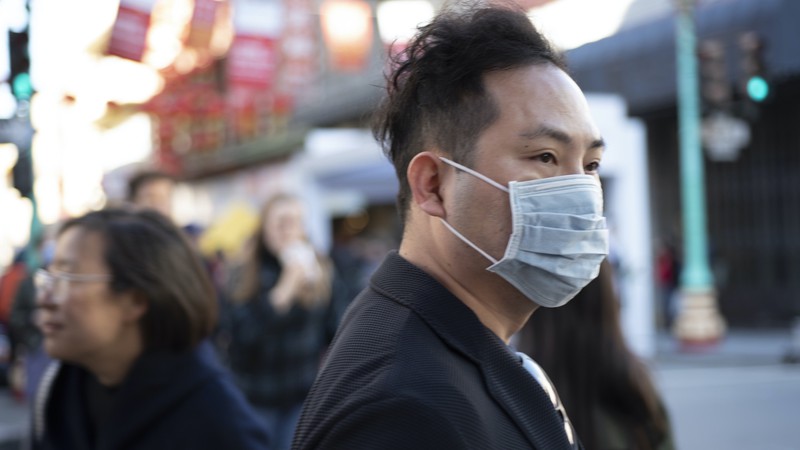
San Francisco has seen an 85 percent jump in new COVID cases over the past week. Daniel Arauz / Wikimedia Commons C.C. 2.0 License
Not even one month after Governor Gavin Newsom ordered all COVID-related health restrictions ended in California, case counts are rising in the Bay Area, Sacramento County, Los Angeles County and other areas of the state, raising the possibility that some level of restrictions—such as mask mandates and social-distancing requirements—could come back.
The troubling rise in COVID cases as well as hospitalizations from the virus are linked to two factors: unvaccinated people, and the delta variant, a mutation of the original novel coronavirus that is more highly contagious. Experts believe that the delta variant may also cause more severe symptoms of COVID-19 disease.
But the most significant risk factor for contracting COVID at this point is the lack of vaccination. Nationwide, 99.7 percent of new cases have occurred in non-vaccinated people, and the delta variant accounts for 52 percent of all new cases. In Los Angeles County where approximately one of every four Californians resides, about 99 percent of all new cases strike unvaccinated residents, according to a Los Angeles Times report. About 50 percent of all new cases in Los Angeles County are now attributed to the delta variant—up from just five percent one month earlier.
In Sacramento County, the seven-day average of new daily cases on July 12 hit 127, the highest level since May 12, according to data compiled by the nonprofit ActNow Coalition, which monitors the COVID-19 pandemic throughout the United States. In Sacramento County, 54 percent of adults have received at least one dose of a COVID vaccine, placing it near the middle of the pack in California—26th out of the 58 counties, according to ActNow data.
Los Angeles County on July 11 reported an alarming 3,000 new cases over the previous three days, according to reporting by Luke Money and Rong-Gong Lin II of the Los Angeles Times. And in several Bay Area counties, according to a San Francisco Chronicle report by Erin Allday, a surge in COVID cases has caused federal health authorities to tag the region as a “hot spot” to be placed on a watch list.
Public health officials in San Francisco, as a result of the increase, will now require that all hospital, nursing home, jail and homeless shelter workers receive a COVID vaccination prior to September 15, Allday reported. Previously, San Francisco was holding off on the requirement until the federal Food and Drug Administration granted full, non-emergency approval to at least one vaccine. Currently, the FDA has authorized three vaccines—those made by Pfizer, Moderna, and Johnson and Johnson—for “emergency” use.
The increase in Bay Area cases, however, would seem to be happening in spite of relatively high vaccination rates. Santa Cruz County and Santa Clara County rank fourth and ninth respectively, at 73 percent and 69 percent respectively. San Francisco County ranks third at 74 percent—but according to data from the Centers for Disease Control, cited by the Chronicle, San Francisco has seen an 85 percent increase in cases over the past week, making it one of the hardest-hit urban areas in the country.
Read the San Francisco Chronicle report. (Paywall)
Short articles summarizing reporting by local news sources with linkbacks to the original content.